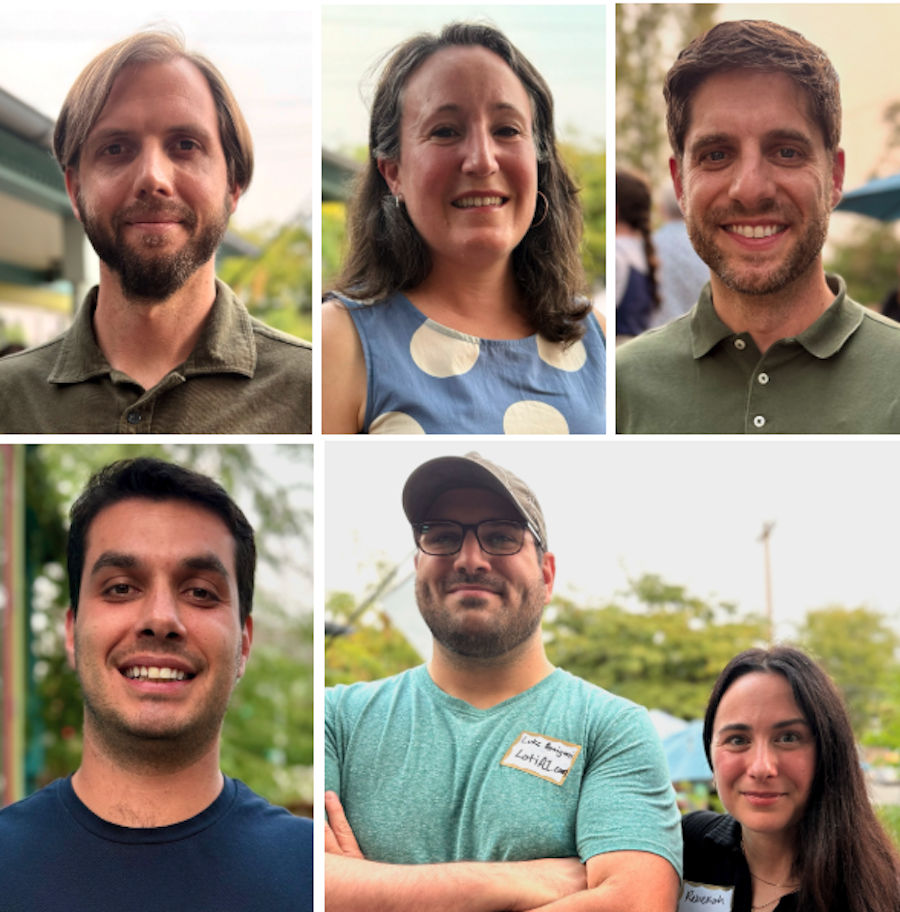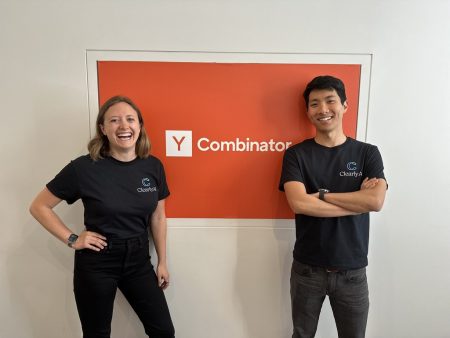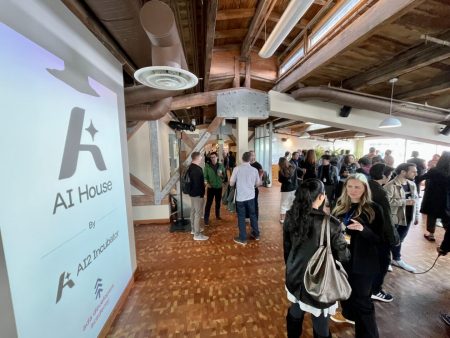Startup Leaders Share Insights on AI, Human Value at GeekWire Deck Party
In a refreshing display of genuine human connection, GeekWire hosted a lively deck party at their Seattle headquarters, bringing together innovative startup leaders for candid conversations about artificial intelligence, business pressures, and the irreplaceable human elements they bring to their companies. As technology increasingly blurs the lines between human and machine work, these conversations revealed thoughtful perspectives on how AI tools are being integrated into daily operations while highlighting what remains uniquely human in the startup ecosystem.
The gathering featured a diverse group of founders and CEOs navigating the complex intersection of technology and humanity in their businesses. Ross Finman of Augmodo, which helps retailers track inventory with “Smartbadges,” shared his pragmatic approach to AI implementation. While he leverages AI for customer research tasks that would otherwise be time-consuming, he remains “a little bit skeptical of a lot of the use cases now,” acknowledging that meaningful applications take time to develop. Finman noted a distinct difference between investor and customer expectations regarding AI—investors push for AI-centric pitches, while retail customers focus solely on ROI regardless of the technology behind it. When asked what uniquely human element he brings to his company, Finman didn’t hesitate: “Trust. Especially in a small team… I can trust that it’s all getting done, rather than an AI system with that constant hallucination.”
Arna Ionescu Stoll, CEO of Wavely Diagnostics, which developed a smartphone app for detecting ear infections, offered practical examples of how AI serves as her productivity partner. She described using ChatGPT to quickly create an unsubscribe link and landing page for company emails—a task completed in under two minutes. However, she emphasized her approach to writing with AI assistance: “I don’t ask it to write for me. I write a draft… what it does is it gives it the polish.” Stoll expressed concern about investor pressure to be “AI native,” warning that “a couple of years from now, there’s gonna be a heck of a lot of tech debt that companies are going to be wading through if they’re relying too much on GenAI.” Her irreplaceable human contribution? “A little bit of humor… Fundamentally, companies are built by teams of people. You’ve got to have good relationships. You’ve got to enjoy being together, or why the heck are you going to work so many hours side-by-side?”
For Luis Poggi, CEO of HouseWhisper, an AI-powered assistant for real estate agents, artificial intelligence serves as a creative thinking partner. “I’ve been using it a lot for creating product ideas. I take customer feedback and my ideas and I start brainstorming with AI,” Poggi explained, often engaging with ChatGPT or Gemini during his commute before bringing those ideas to his engineering team. Unlike some, Poggi hasn’t felt pressure from customers to appear more AI-focused—in fact, his company often finds itself explaining AI concepts to clients. While investors occasionally suggest expanding AI use in areas like marketing, Poggi hasn’t experienced significant pressure to exaggerate his company’s AI capabilities. He identified his uniquely human contribution as “bringing the energy and the emotions and the passion to the day-to-day and motivating the rest of the teammates… That will not be replaceable.”
The husband-wife team behind Loti, a startup protecting high-profile individuals from deepfakes, offered complementary perspectives on AI’s role in their business. Co-founder Rebekah Arrigoni explained how their company relies on “over 40 different proprietary machine learning models” for facial and voice recognition to identify unauthorized media across the internet—technology that far surpasses traditional reverse image searches. Her husband and CEO Luke Arrigoni acknowledged the fundraising advantages of AI buzzwords: “If I said ‘agentic’ too loudly here, I’d probably get someone to throw a check at me.” However, he emphasized focusing on business fundamentals rather than AI hype: “What do people really want? What problems are you really solving? And AI is just sometimes a cheaper way to get it done.” On the topic of human oversight, Rebekah was clear: “I don’t think you can have self-regulation of nearly anybody—companies or AI. I think that it does require some level of human oversight… there still needs to be a human to say, ‘This is a tool that’s gonna be useful for humanity.'”
Alejandro Castellano, CEO of Caddi, which uses generative AI to automate business operations, described his comprehensive use of AI tools across multiple aspects of his founder responsibilities. “I’ve built some automations that automatically draft follow-up emails to all the clients and all the conversations that I’ve had. I’ve used AI to prepare for meetings with customers,” he explained, noting that AI applications are constantly open on his devices. While acknowledging that his company couldn’t exist without current AI models, Castellano highlighted that the infrastructure supporting AI—”how we guide the AI, how it gets built, how we validate it, how the user interacts with it”—is becoming increasingly more important than the AI component itself. His uniquely human contribution comes from building something entirely new: “As a startup you’re effectively building something that has never existed before… that pattern recognition in your conversations with users, in how your users are struggling with something or learning something or getting excited about something—that is something that I don’t see AI being able to replicate.” This sentiment perfectly captures the essence of what makes these startup leaders irreplaceable in an increasingly AI-driven world—their ability to identify unmet needs, forge meaningful human connections, and create innovative solutions that have never existed before.














